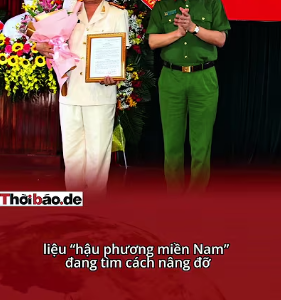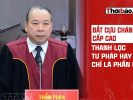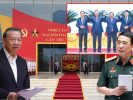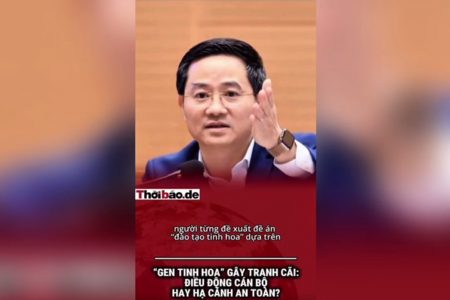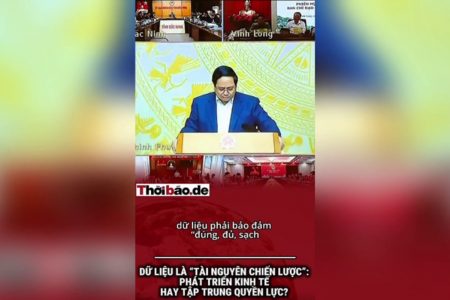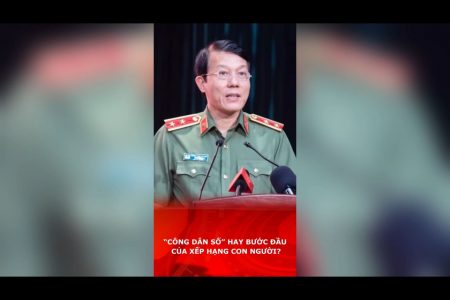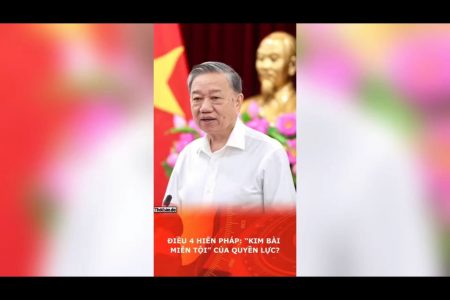
For the leaders of Southeast Asia’s two biggest nations, Indonesia and the Philippines – two fledgling democracies in the grip of populism, each is unhappy in its own way.
On the surface, Philippine President Rodrigo Duterte and his Indonesian counterpart Joko Widodo, not only lead the two countries very similarly but are almost cut from the same cloth. However, the two leaders took different approaches in their relationship with China – and the results brought about by those approaches are also completely different.
While falling to China for many years has not brought Duterte a valuable investment to date, Jokowi’s more sophisticated and dignified strategy has ensured optimal investment as well as the rapid distribution of the millions of doses of Covid-19 vaccine made by China. It seems the indisputable lesson is that China looks down on weak leaders like Duterte but will make mutually beneficial agreements with people like Jokowi, who does not accept being intimidated by the Asian superpower. In recent years, Duterte and Jokowi are two faces representing populist politics in Southeast Asia. Both have served as provincial governors, who have reached the height of their power by campaigning against corruption.
While Duterte presented himself as a man of the people, Jokowi actively served ordinary citizens, making it central to his agenda. Both have adopted tough policies to crack down on crime, especially in the fight against drug dealers. Crucially, both presidents have bet their development agenda on China’s „generosity“ despite objections from conservative forces who have accused them of acting like Beijing’s „henchman.“ And yet, Jokowi has attempted to develop a relatively effective relationship based on mutual respect, while Duterte is indecisive.
While Jokowi relied on a strategy of balancing the great powers, Duterte tried to break the centuries-old alliance relationship between the Philippines and the US as part of its pivot to China strategy. As a newcomer to foreign policy, Duterte unintentionally revealed his card in a Chinese state media interview in early 2016 before he was sworn in as president. „What I need from China is to help the Philippines thrive,“ he said. Just a few months later, Duterte became the first Philippine president to choose China, instead of the US or Japan, as the first destination for a foreign trip. He was also the first Philippine president to refuse to visit major Western capitals – including Washington – during his six-year term. With Duterte’s innocence, China has pledged $24 billion to invest, including several large-scale infrastructure projects in Mindanao, the Philippine president’s hometown. These blatant promises were enough to persuade Duterte to make major concessions, including a controversial decision such as not asserting the Philippines‘ historic victory in the China Sea case over the South China Sea issue to an arbitration court in China. La Haye.
To please Beijing, Duterte even threatened to cancel defense cooperation with the US and share valuable energy resources in the Philippines‘ Exclusive Economic Zone with China. Worse still, Duterte quickly defended Beijing when a Chinese militia ship allegedly nearly sank dozens of Filipino fishermen near Rong Lawn in 2019. When pressed against the Chinese invasion in Philippine waters, Duterte reacted to show helplessness and worthlessness. After five years of implementing the strategy of „slavery“ (depending entirely on China), Duterte received little from the pivot to Beijing, even the large number of free COVID-19 vaccine that China promises to provide by the end of 2020.
Meanwhile, Jokowi has made a state visit to both Washington and Beijing, as well as trying to promote strong security cooperation with both superpowers, thereby strengthening Indonesia’s strategic leverage. As China increased its intrusion into the waters off Indonesia’s Natuna archipelago by the end of 2019, the Indonesian president not only deployed fighter and naval aircraft but also personally visited the area to remind China. He stated that Jakarta would „make no compromises“ in maritime and territorial matters. Although Indonesia does not have a direct sovereignty claim in the South China Sea, Jokowi’s diplomats formally invoked the arbitration ruling in the Philippines case to challenge China’s expansionist claims, as well as publicly accusing China of election meddling activities. In the foreign investment sector, Indonesia has actively attracted not only China but also other countries like Japan. This intentional diversification strategy partly explains why Jakarta can have extremely favorable terms, arguably best under the Chinese Belt and Road Initiative, for the Jakarta-Bandung high-speed rail project.
And as China lags behind on commitments worth billions of dollars, Jokowi is quick to use Japan to attract Beijing’s attention. In 2019, Japan and China become Indonesia’s top foreign investors, with dozens of large-scale infrastructure projects underway, while Jokowi let the 2 economic „giants“ face off against each other.
Lessons for Southeast Asian countries from the above two cases show how these two Southeast Asian countries deal with an increasingly assertive China. Indonesia has shown that even poorer countries have the ability to shape Beijing’s behavior, as long as they are not naively making big concessions like Duterte. Jokowi’s bravery and strategic acumen show that not all populists are alike, even though they come to power under equally difficult circumstances.
Vietnam is also a Southeast Asian country with many problems in its relations with China. Living next to a giant neighbor has made the mentality of a small country deeply ingrained in Vietnamese thinking. Many Vietnamese officials always express the thought „China is strong, how can we fight China,“ that is why it has led to the inferior and weak attitude towards China. For example, during the Chinese train cut off the cable of the Binh Minh 02 and the Vietnamese Viking II in 2011, Deputy Head of the Central Commission on Propaganda and Education Nguyen Ky went everywhere to talk about China’s conspiracy and actions. However, he also said that although China is „ugly“ as such, the Communist Party of Vietnam is still „determined“ to elevate relations with China to a higher level so that binding China cannot continue to infringe on Vietnam’s sovereignty. Alas, it was because of that kind of thinking that China was able to step in at the oil rig HD 981 event in 2014. Today, international relations are no longer a relation between small and big countries but international relations are built on the foundation of respect for independence, national sovereignty, equality, and mutual benefit. The lessons of Indonesia and the Philippines contribute to helping countries like Vietnam know how to deal with the „ugly Chinese giant.“
Therefore, in relations with China, Vietnamese people need to remove the small-country mentality that is deeply rooted in the way of thinking; must put ourselves in the position of an independent, sovereign, and equal state in international relations; no inferiority and fear. That will help Vietnam survive and develop before a big and ambitious China.
Thoibao.de (Translated)
Source: https://www.rfa.org/vietnamese/news/blog/how-to-deal-with-china-04152021143924.html





